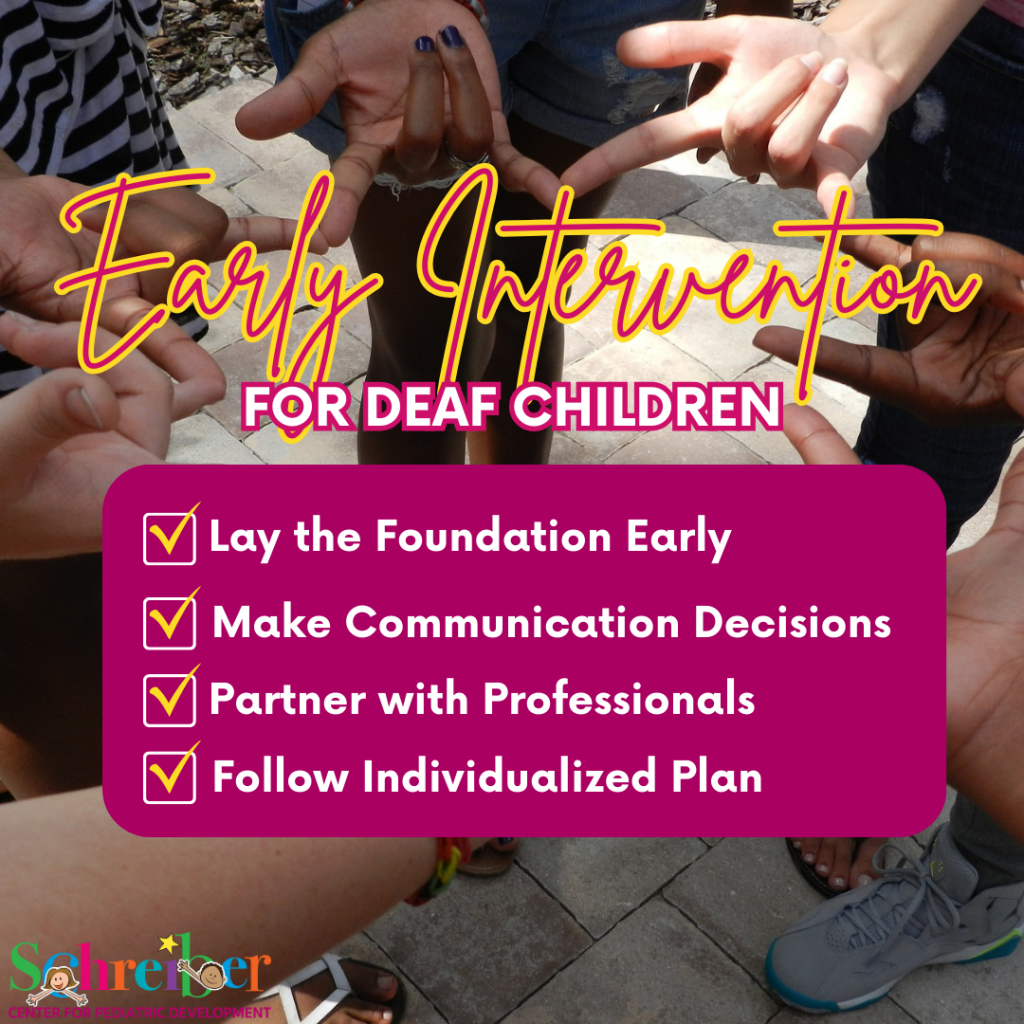Early Intervention for Deaf Children
September 22, 2023Communication is essential for human interaction. Unfortunately, Deaf children face challenges in communication that can significantly affect their development. The good news is, early intervention during their infancy and toddler years can greatly lessen these communication barriers with the hearing world.
By providing specialized assistance in these critical early years, we have the opportunity to guide them towards a better future. From acquiring language skills to integrating socially, early intervention plays a crucial role in shaping their development.
Starting Early: Laying the Foundation
Detecting and addressing hearing loss early is crucial to establish a solid learning foundation for Deaf infants and toddlers. At Schreiber, we take pride in minimizing waiting times for children to be assessed by our dedicated pediatric therapists. Identifying the needs of Deaf infants and children promptly and offering appropriate support enhances their developmental trajectory. Early intervention acts as the key that unlocks their potential, equipping them with the tools to navigate communication effectively.
Communication Choices: Empowering Families
Empowering families to select communication methods for their Deaf children is pivotal to their success. Families can opt for American Sign Language (ASL), speech development, or a combination of approaches. By tailoring their approach to suit their child’s individual needs and preferences, families can enhance the likelihood of their child’s success.
Qualified Professionals: Guiding Growth
Based on the chosen communication method, Schreiber’s speech therapists collaborate with Deaf children to overcome communication barriers. These therapists recognize that communication extends beyond words; it encompasses self-expression, understanding, and building meaningful connections. Using innovative techniques and compassionate care, our therapists empower Deaf children to confidently navigate the world of communication.
Individualized Plans: Unleashing Potential
There’s no one-size-fits-all solution in early intervention for Deaf children. Schreiber’s speech therapists acknowledge the uniqueness of each child’s journey and create personalized intervention plans that encompass a variety of strategies. These plans cater to each child’s strengths and needs, ranging from fostering proficiency in American Sign Language (ASL) to enhancing speech development. Recognizing that progress isn’t linear, Schreiber’s speech therapists provide a supportive environment where children can explore different communication avenues at their own pace.
A Pathway and A Promise
Early intervention not only bridges communication gaps but also establishes a strong foundation for lifelong learning and success. As we advocate for inclusive and accessible child development approaches, it’s crucial for parents, caregivers, educators, and healthcare professionals to collaborate to ensure that every Deaf infant and toddler receives the necessary support to thrive on their unique journey. Early intervention isn’t merely a pathway; it’s a promise of a brighter future for every Deaf child.
If you child is Deaf and you are interested in learning more about how Schreiber’s Pediatric Therapies can help your child visit: http://www.schreiberpediatric.org/therapy-services/
As a nationally recognized pediatric facility, the Schreiber Center for Pediatric Development provides family-centered education and therapy programs for infants, children and adolescents with disabilities, developmental delays, and acquired injuries. Our goal-oriented approach maximizes each child’s ability to function independently within the community.
